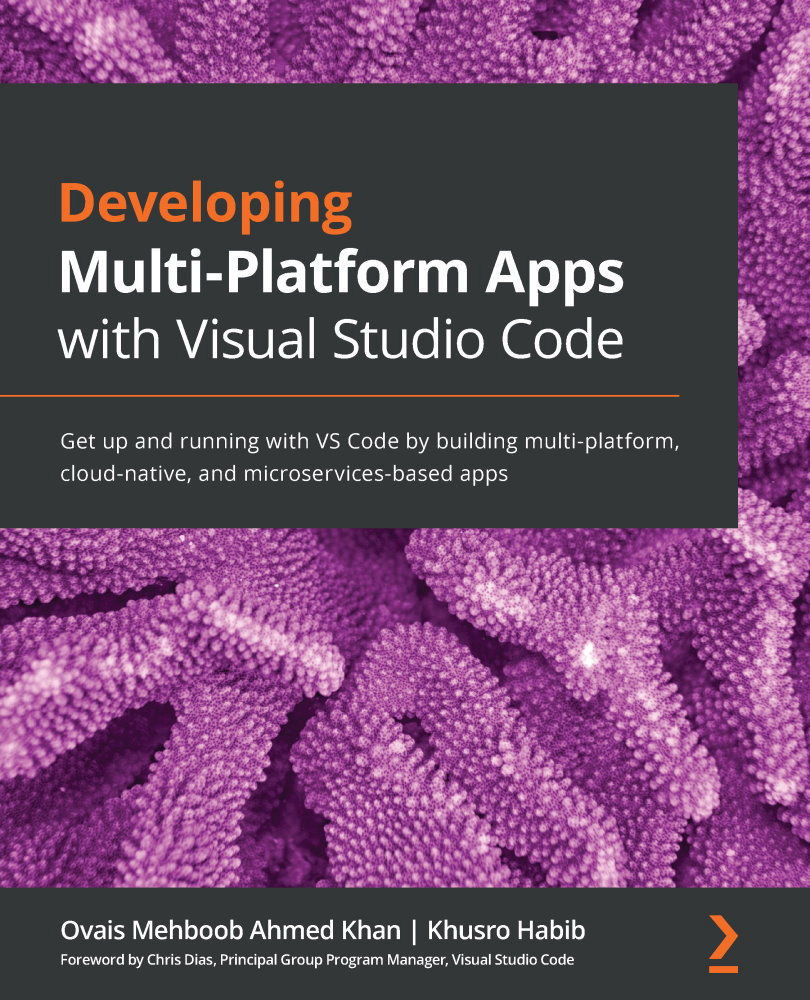-
Book Overview & Buying

-
Table Of Contents

Developing Multi-Platform Apps with Visual Studio Code
By :

Developing Multi-Platform Apps with Visual Studio Code
By:
Overview of this book
Microsoft Visual Studio Code is a powerful, lightweight code editor for modern web and cloud development. It is a source code editor that can be used with a variety of programming languages, which works on multiple platforms such as Linux, Windows, and macOS. This book provides extensive coverage of the tools, functionalities, and extensions available within the VS Code environment that will help you build multi-platform apps with ease.
You’ll start with the installation of VS Code and learn about various tools and features that are essential for development. Progressing through the chapters, you'll explore the user interface while understanding tips and tricks for increasing productivity. Next, you’ll delve into VS Code extensions and discover how they can make life easier for developers. Later, the book shows you how to develop a sample application with different programming languages, tools, and runtimes to display how VS code can be used effectively for development, before helping you get to grips with source code version management and deployment on Azure with VS Code. Finally, you’ll build on your skills by focusing on remote development with VS Code.
By the end of this book, you’ll have the knowledge you need to use Visual Studio Code as your primary tool for software development.
Table of Contents (15 chapters)
Preface
Section 1: Introduction to Visual Studio Code
 Free Chapter
Free Chapter
Chapter 1: Getting Started with Visual Studio Code
Chapter 2: Extensions in Visual Studio Code
Section 2: Developing Microservices-Based Applications in Visual Studio Code
Chapter 3: Building a Multi-Platform Backend Using Visual Studio Code
Chapter 4: Building a Service in .NET Core and Exploring Dapr
Chapter 5: Building a Web-Based Frontend Application with Angular
Chapter 6: Debugging Techniques
Chapter 7: Deploying Applications on Azure
Chapter 8: Git and Azure DevOps
Section 3: Advanced Topics on Visual Studio Code
Chapter 9: Creating Custom Extensions in Visual Studio Code
Chapter 10: Remote Development in Visual Studio Code
Other Books You May Enjoy
